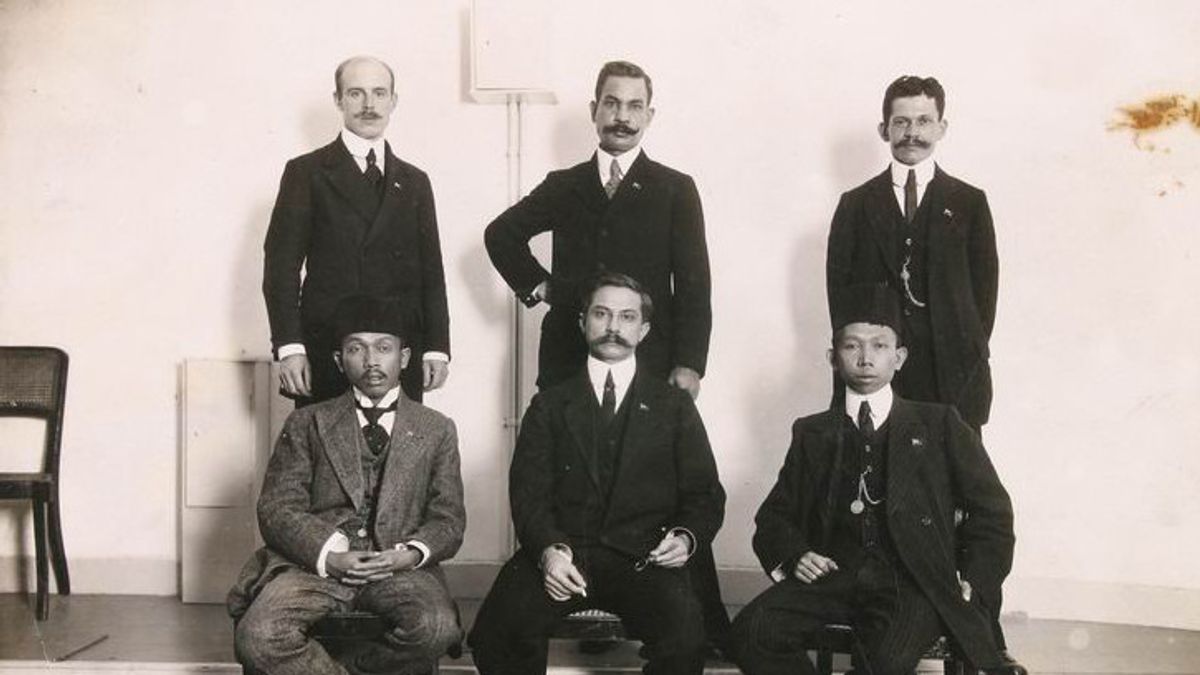JAKARTA – History today, 109 years ago, July 30, 1913, Tjipto Mangoenkoesoemo and Soewardi Soerjaningrat (later known: Ki Hajar Dewantara) were thrown into prison by the Dutch. The actions of the Dutch colonial government caused quite a stir. Moreover, the owner has the power to catch both of them because they are often noisy. In a sense, the actions of both verbally and in writing were often against the Dutch. One for all, all for one. That's what they both wanted. Colonization must be abolished.
The birth of the first nationalist party in the Dutch East Indies, the Indische Partij (IP) caused quite a stir. The initiator is not a random person. Ernest Douwes Dekker, Soewardi Soerjaningrat, and Tjipto Mangoenkoesoemo were behind it. The presence of IP immediately boomed. All three clearly defined the direction IP was defending: resistance to the Dutch.
A fight against tyranny. And of course the statement of 'war' against the Dutch East Indies colonial government which he considered racist blackmail. Spoken and written are the mouthpieces of IP resistance.
IP propaganda is also perpetuated through a newspaper called De Expres. The tactic worked. The echo of the greatness of IP often attracts the attention of the Dutch. Especially to Tjipto and Soewardi.
Both have different characters who struggle. The only thing that made them the same was their deep hatred for the Dutch. The behavior of the colonizers is considered both full of heresy. They only make the natives like cash cows.

“He is as complex as Soewardi, but from a different angle. If in his life Soewardi changed from satria to pandita, Tjipto was truly a warrior in his entire life.”
"When Soewardi dropped out of medical school and then became a radical young man with an article, Tjipto practiced as a doctor and an impatient rebel who couldn't stop himself from showing his disgust for power and splendor, even before he started his political career," says Takashi Shiraishi in his book 1000 years Nusantara. (2000).
Every writing in De Express continues to be suspected of being rebellious behavior. Especially when the appearance of writing from Soewardi entitled Als ik eens Nederlander was (If I Was a Dutchman) in 1913.
The writing was critical because the Dutch tried to ask the natives to form a joint venture to celebrate the independence of the Netherlands from France. Soewardi thought it was not good. Moreover, the Netherlands held a euphoria of independence in a country deprived of independence. As a reward, Tjipto and Soewardi were imprisoned by the Dutch on July 30, 1913.
"For the purposes of arresting Tjipto Mangoenkoesoemo and Soewardi, the authorities deployed a number of Bandung police officers, assisted by a battalion and a half of Dutch and Ambonese soldiers. They were fully armed with unsheathed bayonets, as if the two prisoners were the most dangerous people in this Dutch East Indies region.”
“On July 30, 1913, Soewardi was suddenly arrested at his home. Under strict military control, he was immediately taken to prison. he never thought that would happen. along the way, all eyes seemed to be looking at him. Soewardi is known to many people. He was the former chairman of the Sarekat Islam in Bandung, who at that time had resigned due to his busy schedule in the Boemipoetra Committee,” said Irna HN Hadi Soewito in Soewardi Soerjaningrat's book in Exile (2019).
The imprisonment of the two national figures of the founders of the Indische Partij, Tjipto Mangoenkoesoemo and Soewardi Soerjaningrat became a historical record today, July 30, 1913.
The English, Chinese, Japanese, Arabic, and French versions are automatically generated by the AI. So there may still be inaccuracies in translating, please always see Indonesian as our main language. (system supported by DigitalSiber.id)













